With the use of serious games in class, we managed to get students to reflect on the inequity in our community, in Mexico, and the world.
If video games and virtual simulations are so attractive to young people, how can we leverage this form of entertainment to foster students’ emotional intelligence? Empathy and emotional intelligence are two fundamental skills that sensitize students to relevant social problems and generate a more active response in them, their personality, and the community.
Video games and virtual simulations are a way to connect students with people lives from diverse social groups worldwide. These tools effectively promote empathy toward social justice because they present compelling narratives that draw players into a given situation. Computer simulation games can help foster international empathy, interest in learning, and global civic actions.
“The serious games are designed for a formative purpose rather than entertainment. This type of game places the player or learner in a particular context to develop a specific knowledge or skill.”
– Observatory of Educational Innovation (2016)
Implementation of serious games in class
In the subject “Thinking Skills” offered in the second semester at Prepa Tec to a class in the Multicultural Education program, we address the issue of inequality through serious games. The goal is to promote the students’ empathy and work on attributes proscribed in this educational program, such as cultural sensitivity, broad perspective, sustainable actions, and the development of diverse and inclusive relationships (see Image 1).
Image 1. Attributes of the Multicultural Program Prepa Tec. D.R.© Institute of Technology and Higher Education of Monterrey, México.
The project was implemented in the January-May 2021 semester with a class of 24 students. We use video games and virtual simulations with social themes to promote the intercultural competencies of the students of the Prepa Tec campus in Morelia to achieve the following objectives:
-
Help students empathize and identify with other people from other countries and cultures.
-
Encourage emotional intelligence actively and relevantly.
-
Create interest in global civic learning.
-
Develop the 4Cs: creativity, collaboration, critical thinking, and communication.
-
Promote global empathy and emotional intelligence.
The students had an activity to play a serious game previously selected by the teacher, relevant to the class topic.
Before starting the project, a student survey yielded the following statistics: The class comprised 50% women and 50% men. 83.3% liked to play video games, while 16.7% did not enjoy them. 25% of the students spent between 1 and 2 hours a week on video games in general, while 8.3% of the group played more than 8 hours a week in this activity.
Image 2. Percentage of students who enjoy playing video games.
Image 3. The total hours’ students dedicate to playing video games.
In the survey, we asked the students about their favorite games to know a little more about their preferences and what type of game was most popular. For this question, we selected ten of the most tweeted games in Mexico according to a post from the platform’s official Twitter account in Mexico in 2020. To our surprise, 37.5% of students responded that they liked a different game than those on our list. The games not included on our list were: League of Legends, Crossfire, and Roblox.
Image 4. Most popular video games among the students.
Below are the serious games used in class for this project dealing with social issues and a brief description of each:
-
Liyla and the Shadows of War. This game offers an emotional perspective on the high price families and individuals must pay when there is a war.
-
SPEND is a simulator that deals with the economic inequalities on the American continent and how to survive with a minimum amount of money.
-
RIGGED. This game addresses the difficulties that less privileged adolescents in different countries confront to graduate from high school.
-
TWINE is an open-source tool for telling interactive, non-linear stories.
-
3rd WORLD FARMING. This game helps experience the deprivations suffered by farmers in third-world countries.
-
SYRIAN JOURNEY addresses the complexities experienced by people forced to migrate due to the war in Syria.
The critical thinking skills class is four hours a week. The project was worked during these hours synchronously plus another asynchronous hour when students worked on their prototype game with the Twine tool.
Table 1 shows the social topic study addressed, the serious game used, the modality in which the activity was developed, and the pedagogical instructions to make the most of these simulation tools for student learning.
Table 1: Class Topics, the Simulator used, and pedagogical instructions applied in each game.
Once the project was finished, a round table was held with the students about this experience. They answered a satisfaction survey in which we asked them about the feeling they primarily had while they were playing. The results showed that 37% of the students experienced most a feeling of empathy, followed by 29.2% who said they felt frustrated due to not being able to achieve the objectives of the simulation.
Image 5. Emotions experienced by the students.
The satisfaction survey used a five-point Likert scale with 1 indicating “satisfied” and 5 “dissatisfied.” The mean was 1.98, with a standard deviation of 1.5. Of the five serious games that the students played, the one they liked the most was SPEND.
Image 6. The serious games most enjoyed by the students.
Image 7. Student satisfaction survey regarding this activity.
Finally, the students recorded a one-minute video using the Flipgrid tool to reflect on the following questions:
After playing:
-
Did the activities change your perspective on social inequality?
-
Did they help you reflect and better understand inequality?
-
Did you experience empathy for people suffering from inequality in any of its forms?
-
Did you feel called to be an agent of change?
Reflection
Through this project using serious games, we achieved our main objective for students to practice their critical thinking skills while connecting and empathizing with other people suffering inequalities in any of their forms. Although sometimes frustrating the students, the simulations also made them reflect on the inequalities in our community, Mexico, and the world.
During the pandemic, we have had to be at home most of the time for our safety and health, but through these simulators, we could open the door to other realities that sometimes seem to be alien to us or very distant. Of the attributes in the Multicultural Program of PrepaTec, we used serious games to work directly with Cultural Sensitivity. This attribute, in turn, helps us develop others, like appreciating diversity and considering the perspective of others.
I invite you to explore in class the serious games that I reviewed in this article and then share your experiences and results through the Observatory of the Institute for the Future of Education of Tecnologico de Monterrey.
About the author
Arlette Audiffred Hinojosa (arlette.audiffred@itesm.mx) is a professor of the Multicultural Program at Prepa Tec Campus in Morelia. She teaches Chemistry and Social Entrepreneurship and collaborates in educational innovation projects at Tecnologico de Monterrey. These are her publications in Edu bits in the Observatory: Whatsapp for Education, El Chemistry Lab in TikTok, Virtual Reality for the Study of Human Anatomy, Cineastas 360, My Best Story, videos in volume, Achieve Your Pedagogical Objectives Integrating Google Tools, How to Produce Narrative Audiovisual Videos in Volume for Class?
References
Observatory of Educational Innovation (2016). Edu Trends | Gamification. Observatory of the Institute of Educational Innovation of Tec de Monterrey. Retrieved from: https://observatorio.tec.mx/edutrendsgamificacion
Edited by Rubí Román (rubi.roman@tec.mx) – Observatory of Educational Innovation.
Translation by Daniel Wetta.
This article from Observatory of the Institute for the Future of Education may be shared under the terms of the license CC BY-NC-SA 4.0 
)
)
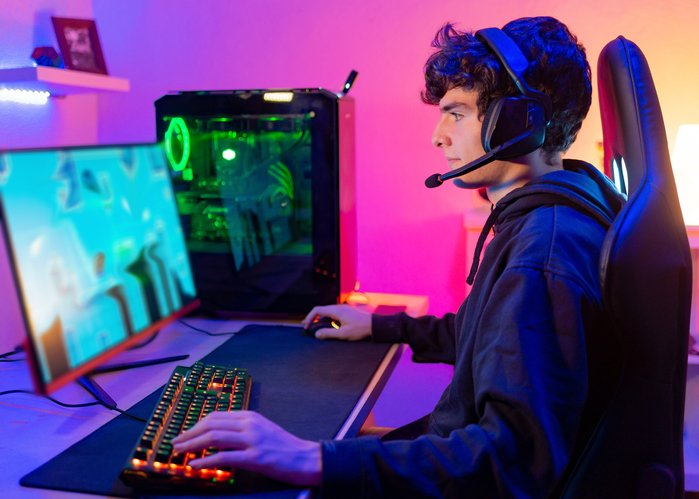
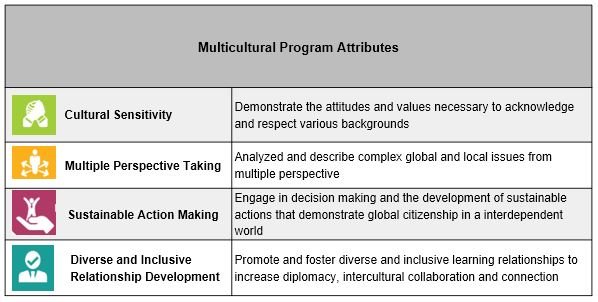
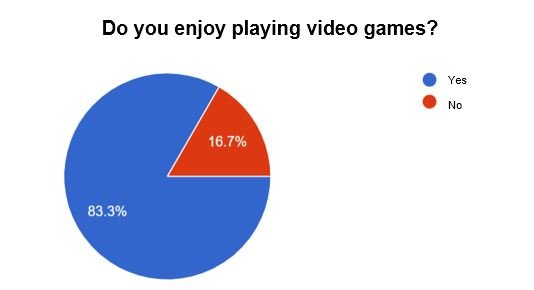
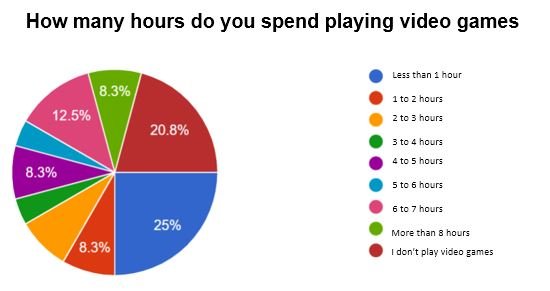

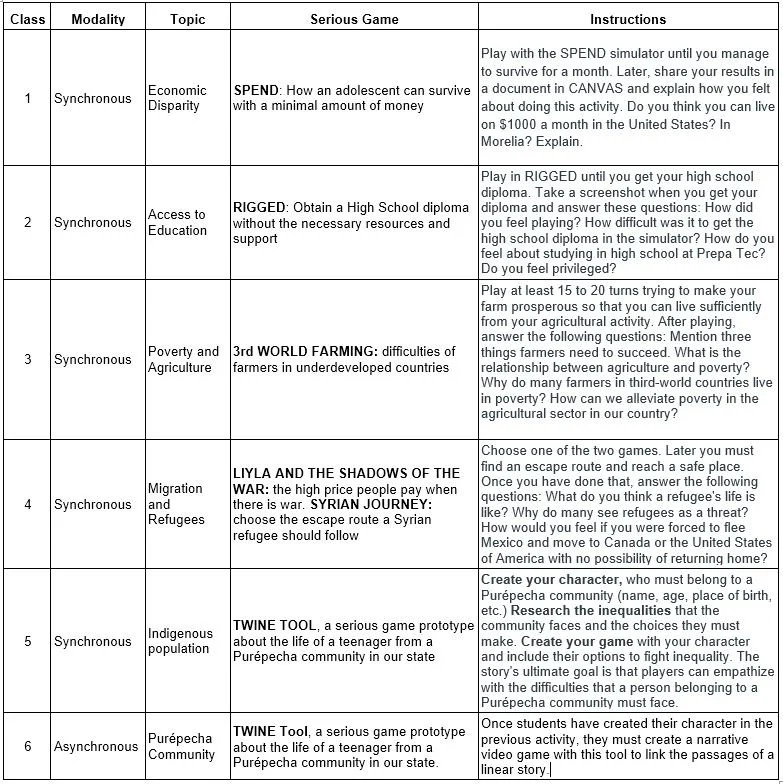

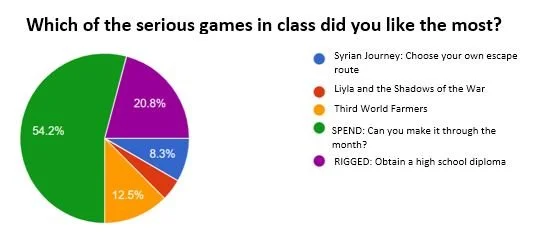

)